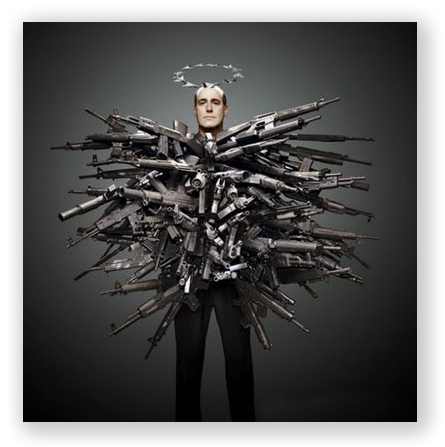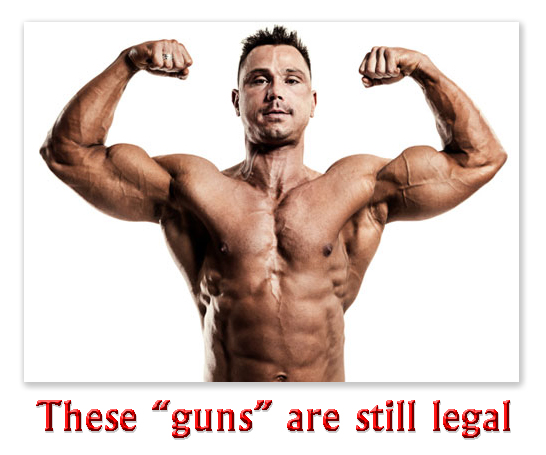We post news and comment on federal criminal justice issues, focused primarily on trial and post-conviction matters, legislative initiatives, and sentencing issues.

AIN’T SEEN NUTHIN’ YET
 With the exception of the Fourth Circuit (which is a story for another time), courts of appeal agree that people convicted of being “prohibited persons” in possession of a gun have to meet the F.R.Crim.P. 52(b) “plain error” standard to raise the Supreme Court’s Rehaif case on appeal where they did not do so at trial.
With the exception of the Fourth Circuit (which is a story for another time), courts of appeal agree that people convicted of being “prohibited persons” in possession of a gun have to meet the F.R.Crim.P. 52(b) “plain error” standard to raise the Supreme Court’s Rehaif case on appeal where they did not do so at trial.
That’s pretty relevant, because until Rehaif was handed down a year ago, no one was raising the issue at trial.
“Plain error” means you have to show that the trial court erred, that the error was plain (or obvious), that it affects your substantial rights, and that the error seriously affects the integrity of the justice system. In Rehaif cases, this means that the defendant had to show that there was a reasonable probability he or she would not have entered a guilty plea or been convicted if the error had not occurred.
To do this, the courts look at how likely it was the defendant would have known he or she belonged to a class of people not allowed to have guns. Sometimes that’s pretty easy to figure out: the defendant knew he or she had previously served more than a year for some prior crime. In that case, it’s hard for a defendant to argue he did not know that he had been convicted of a crime carrying a sentence of more than a year.
But what if the prohibited class the defendant belongs to is not all that clear? Bob Triggs’ kid made some stupid social media posts that suggested shooting up his school, so the police checked to be sure the boy had no access to firearms. In the process, they found that Bob – who had a few hunting rifles – had a 10-year old domestic battery misdemeanor. A conviction for a misdemeanor crime of domestic violence is as disqualifying for gun possession as a prior felony under 18 U.S.C. § 922(g)(9).
 Bob said he had no idea he couldn’t have a gun, and he surrendered the rifles to the police. They turned it over to the U.S. Attorney (who rarely sees a case unworthy of throwing the might of the United States government at the hapless defendant), and Bob got indicted for a § 922(g) offense.
Bob said he had no idea he couldn’t have a gun, and he surrendered the rifles to the police. They turned it over to the U.S. Attorney (who rarely sees a case unworthy of throwing the might of the United States government at the hapless defendant), and Bob got indicted for a § 922(g) offense.
(In another world, the cops would have said, “Gee, Bob, now you know you can’t have guns,” and would have turned his rifles over to the someone to sell them and given Bob the proceeds. But this is America, the world’s leading incarcerator of citizens. We just had to prosecute this hapless guy).
After Bob got convicted, Rehaif – which held that a defendant had to know that he or she was a member of a group prohibited from possessing a gun – was decided, and Bob raised it on appeal under the “plain error” standard. The 7th Circuit agreed the district court’s conviction of Bob without proof he knew he was in a prohibited class was an error, and it was pretty obvious.
The Circuit said to establish prejudice from the Rehaif error, Bob had to show a “reasonable probability that he would not have pleaded guilty had he known of the government’s burden to prove” he knew of the error.
“Many prosecutions under § 922(g) involve violations of… the felon-dispossession provision, which prohibits firearm possession by any person ‘who has been convicted in any court of a crime punishable by imprisonment for a term exceeding one year,’ the 7th said. “Under this simple definition, a defendant will have difficulty establishing prejudice from a Rehaif error because the new knowledge element is quite easy to prove, especially when the defendant previously served more than a year in prison… A defendant in that situation ‘will face an uphill battle to show that a Rehaif error in a guilty plea affected his substantial rights’ because the new understanding of the knowledge element doesn’t materially change the guilty-plea calculus.”
 But what constitutes a misdemeanor crime of domestic violence, the Circuit ruled, is a very complex thing. “Given the comparative complexity of this definition,” the 7th Circuit said, “the guilty-plea calculus changes. Rehaif improves Triggs’s trial prospects, giving him at least a plausible argument that he was unaware that his 2008 battery conviction is a crime of this nature.”
But what constitutes a misdemeanor crime of domestic violence, the Circuit ruled, is a very complex thing. “Given the comparative complexity of this definition,” the 7th Circuit said, “the guilty-plea calculus changes. Rehaif improves Triggs’s trial prospects, giving him at least a plausible argument that he was unaware that his 2008 battery conviction is a crime of this nature.”
The 7th Circuit may yet rue the day it held that 922(g)’s complexity gave a defendant a plausible reason to believe he was allowed to own guns. The definition of “crime punishable by imprisonment for a term exceeding one year” seems pretty straightforward until one reads the pretzel-like definition set out in 18 USC § 921(a)(20). It turns out that sometimes a crime is not a “crime” and a two-year sentence does not exceed one year, and other state laws having nothing to do with disqualifying crime turn it into an offense that doesn’t count.
So the 7th says that § 922(g)(9)’s complicated? You ain’t seen nothin’ yet.
United States v. Triggs, 2020 U.S. App. LEXIS 20542 (7th Cir. July 1, 2020)
– Thomas L. Root

